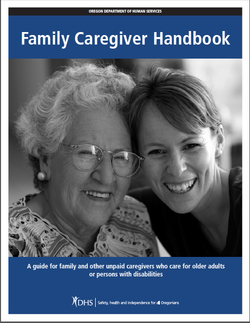
Hovde's column shows that if she ever had any understanding of just how damn expensive it is to be poor in America, her perch of privilege has long since helped her forget that crucial fact. So I wrote a letter to the editor in response, which they ran today (below).
If you have no idea what I mean when I say it's really costly to be poor in America, click the image over there, which is to a great book, Shortchanged: Life and Debt in the Fringe Economy, which every politician in America should have to read and pass a test on before being allowed to legislate.
Letter: Cellphones don't always signal prosperity
So commentary columnist Elizabeth Hovde thinks that we should stop giving food stamps to the not so needy, whom we can all recognize because they have both cellphones and SNAP cards ("Stop feeding the not so needy," Sept. 8)? Whenever the well-off write about how the not-really-needy folks are sponging off public benefits for their lavish cellphone-using lifestyle, I know that these writers have never been in the death grip of a boa constrictor service contract.
Boa constrictor contracts work like this: The company advertises a great monthly rate that you can easily afford when things are going OK for you financially. That's the rate that is splashed all over the flyers and posters and TV and radio ads. That rate is just sucker bait.
Then something happens: You're laid off, your hours cut or your partner's are, you come down with a bad case of the doctor copays or car repairs, your bus system quits running on weekends. It doesn't matter why you can no longer afford the service that you could once handle. Because no matter why, you are going to be told that you can only cancel or switch to a cheaper plan by paying several hundred dollars first. And if you just cancel the traditional way, by not paying, you are going to find yourself hounded by collection agencies for the monthly charges, plus the penalties, and then sued for them, plus court costs and attorney fees, and you'll have your wages garnished and your credit ruined. All because you couldn't afford to pay a penalty to stop a service contract you could no longer handle.
We need to do two things: Force companies to fully disclose how much their service contracts really cost, and let struggling folks cancel without getting hammered with penalties.
On the first, our motto should be "Service Contracts Oughta Reveal Everything," which spells SCORE.
SCORE would mean that anything that comes with an early-cancel penalty -- cellphone, Internet, satellite TV, gym membership, alarm system -- the company would have to tell you, in big bold type, at signup time, the true total of all the payments you must make to get past any penalties. That's first.
Second, we should require that contracts with early-cancel penalties must have waivers so that any customer on public benefits (such as SNAP, Medicaid, public housing) can cancel a contracted service without penalty.
Until we do a much better job of making sure that everyone knows what they're getting into with service contracts (with SCORE disclosures) and until we prevent early-cancel penalties from putting the squeeze on the poor, I suggest that Hovde just be thankful for the privilege that allows her to casually equate having a cellphone with being "not so needy." I see plenty of consumers who are being squeezed to death by contracts that they would love to escape, if it didn't cost more to cancel the contracts than to keep paying.
JOHN GEAR
Gear is a Salem attorney.
Another Oregon attorney writes:
Nice letter.
Apparently, Ms. Hovde must not realize that the people who qualify for food assistance generally have the least expensive and crappiest version of everything that she and her family rely on for their daily life, like:
* generic unhealthy processed food;
* clothing from thrift stores or Wal-Mart;
* cars with duct tape—if at all;
* unattractive and often unsafe housing;
* cheap and sometimes dangerous toys with little educational value for their children;
* less responsive medical care;
* less responsive public safety providers;
* crappier schools;
* crappier neighborhood infrastructure;
* three-year-old game systems because it’s cheaper to entertain three kids with a game system then taking them to the moves once a month; etc.
She also apparently doesn’t understand life changes. I often see my clients qualifying for food assistance post-divorce when they already have nice cars (with zero value), good clothes (that won’t be replaced), smart phones on a family plan (that now isn’t being paid by the ex), three children and a spouse who is reluctant to provide adequate support.
I also bet Ms. Hovde has never seen the 10 page application for state assistance asking for the income information for everyone in the applicant’s household, and asking for the value of the persons vehicle, and other worldly possessions….
I’ve seen some real cases of benefits fraud in my work—eg. a trust-funder collecting TANF, OHP, SNAP who then faked earning $15K per year to claim an Earned Income Credit on his federal returns— so I know they exist, but anything that makes it harder for poor people to get help is a really bad idea.




 RSS Feed
RSS Feed
